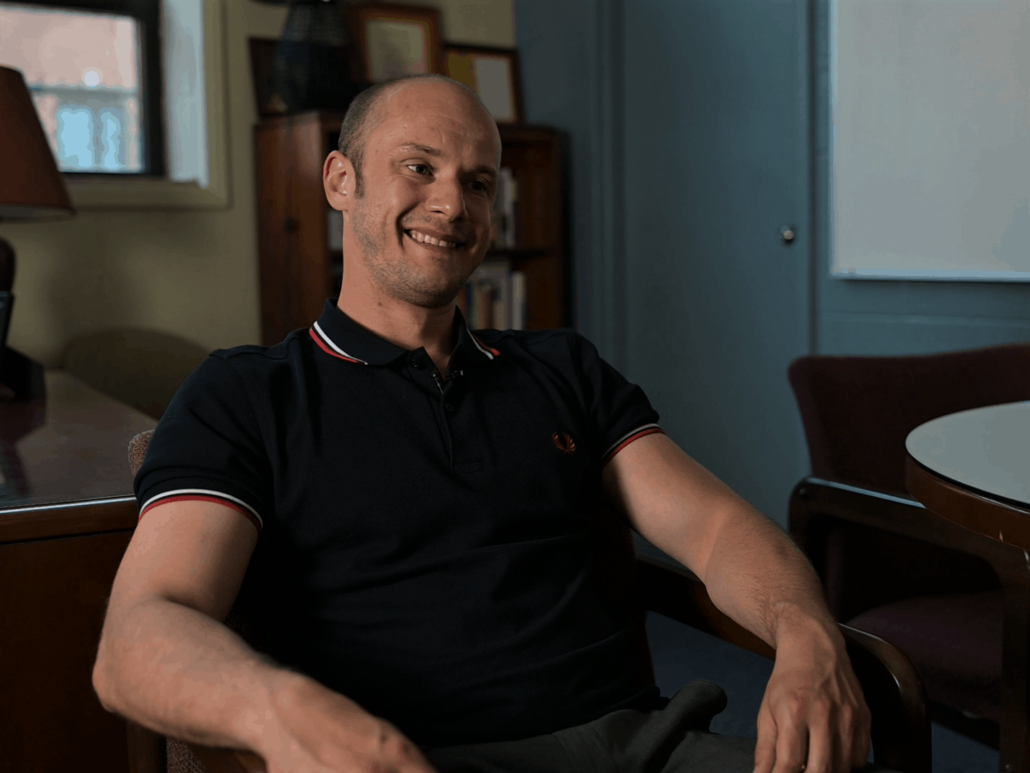The curriculum of the Guiding Light Recovery program centers around seven focus points. These points are the concepts of willingness, honesty, vulnerability, self-awareness, self-compassion, responsibility, and spiritual formation.
Of these seven, one of the most important, and difficult, abstractions for clients to grasp is that of vulnerability. For many of the men that come into the program the notion of showing vulnerability in any way is anathema to the way they have lived their lives for a very long time. Living in active addiction often forces men to develop a thick skin and to put up walls, both physically and emotionally, in order to protect themselves. Breaking through these walls and becoming willing to ask for and to accept help from others is one of the first steps to getting sober. At Guiding Light, the client learns to live with uncertainty, risk, and emotional exposure so he can more fully experience love and connection. Here he realizes that vulnerability is not a weakness but is rather courageous and empowering. The client begins to understand that vulnerability is at the heart of learning to live a different way. He begins to see vulnerability as power and possibility in creating meaningful relationships and engaging in responsible living.
Gabe has been a client at Guiding Light for four months and has experienced first-hand a shift in his mindset by allowing himself to embrace the concept of vulnerability within the context of his recovery. “I didn’t understand the true definition of vulnerability when I came here,” he said. “Every little situation that made me uncomfortable, basically every situation whether it be celebration or me exercising self-pity and feeling sorry for myself for not doing anything with my life…that was just a reason to drink. I always had a reason to get drunk or high.” Nearly everyone who has dealt with addiction has reported something similar to this, whether times are good or bad, there is always a justification to continue their addictive behavior. Finding excuses is a means for the mind of one living in active addiction to carry on with a self-destructive lifestyle despite all of the evidence that it is harming them and others. “I understand the true meaning of vulnerability now, which is not weakness, but basically just stepping out into the unknown and putting yourself out there. Instead of hiding in a shell like I was, being an introvert, and sitting in my room getting drunk and high. Living like that was comfortable and gave me instant gratification…as opposed to going out into the real world and living life like a normal human being. Now I look at vulnerability as a true strength.” When it becomes too obvious that one’s life in addiction is unmanageable, he or she puts up walls and increasingly isolate themselves from anyone and anything that might remind them of how painful their life has become. This is why the concept of being vulnerable in any way, shape, or form, becomes simply not an option. This is why at Guiding Light we seek to change our client’s mindset.
Something is working here at Guiding Light. 77% of men who come through our doors, find employment, and move to Iron House, our sober-living community in Kentwood, are still sober over a year later. These statistics are, frankly, remarkable when contrasted with a 2007 study conducted by the social-research journal, Evaluation Review, showing that only 33% of men who attempt to get sober on their own are able to accomplish this.[i] The only cost for men to be accepted in the Guiding Light program is their willingness to change and commitment to living a different way. Our clients have access to professional and holistic treatment and care from therapists, spiritual directors, and life coaches. It costs roughly $300 a day to house, feed, and teach our clients how a life in sobriety is possible, and we could not do it without you. You are the reason we see miracles happen here every day. It truly is a miracle that a man like Gabe can come here and learn to live the life he does today, a life of freedom, joy, happiness, and sobriety. From all of us at Guiding Light, clients and staff alike, thank you so much for all that you do, God bless.
[i] Dennis, M. L., Foss, M. A., & Scott, C. K. (2007). An eight-year perspective on the relationship between the duration of abstinence and other aspects of recovery. Evaluation review, 31(6), 585–612. https://doi.org/10.1177/0193841X07307771




